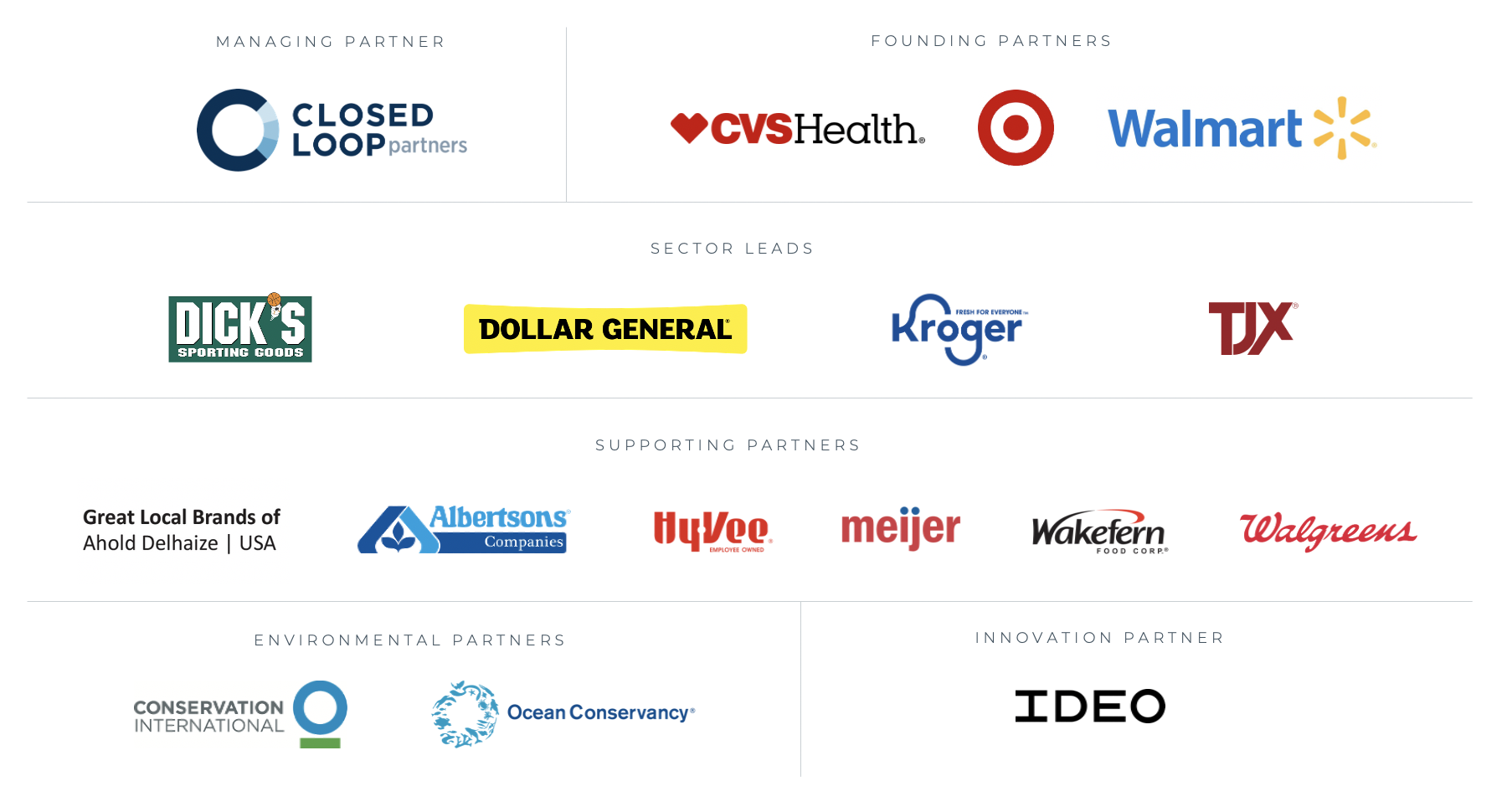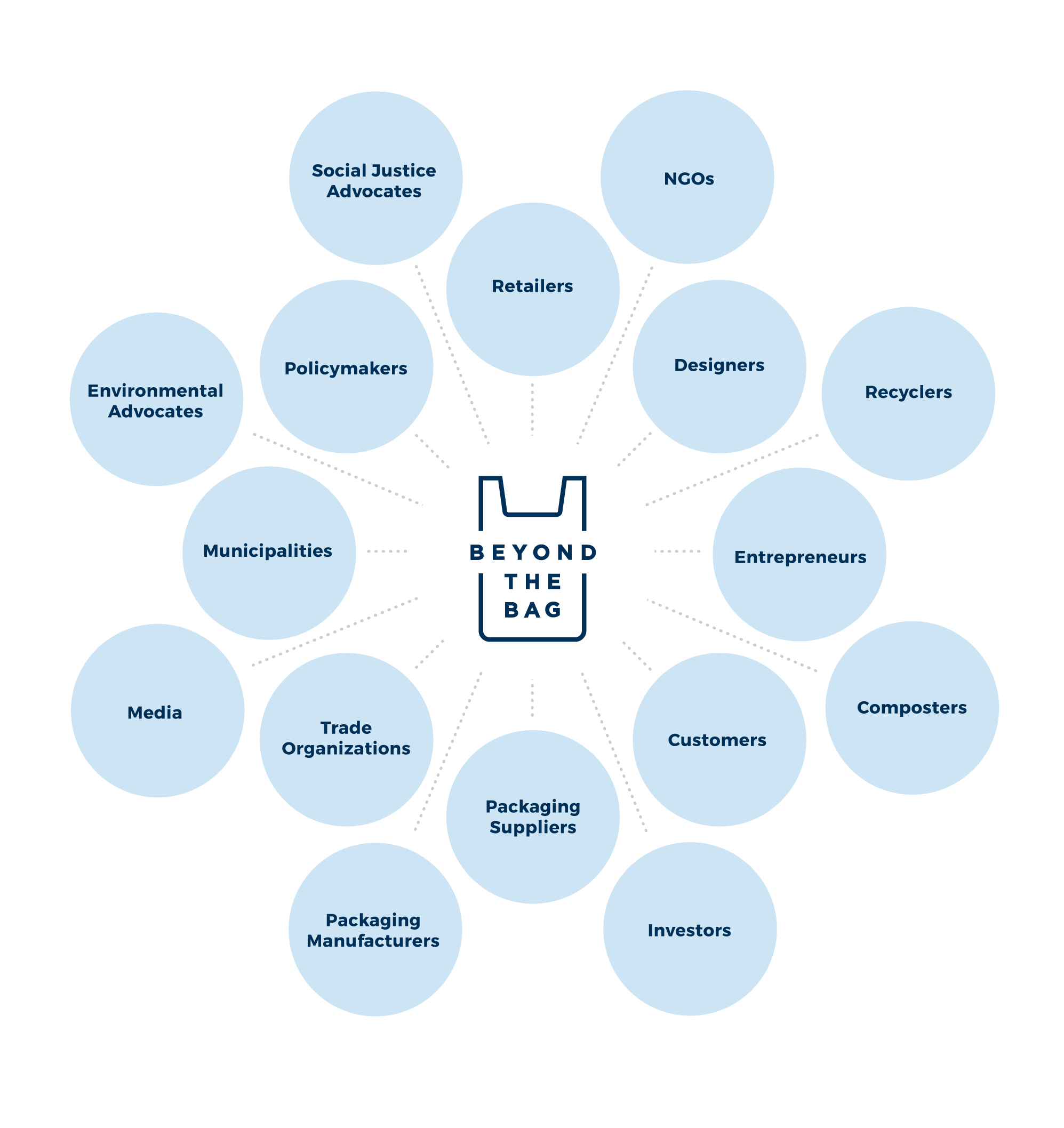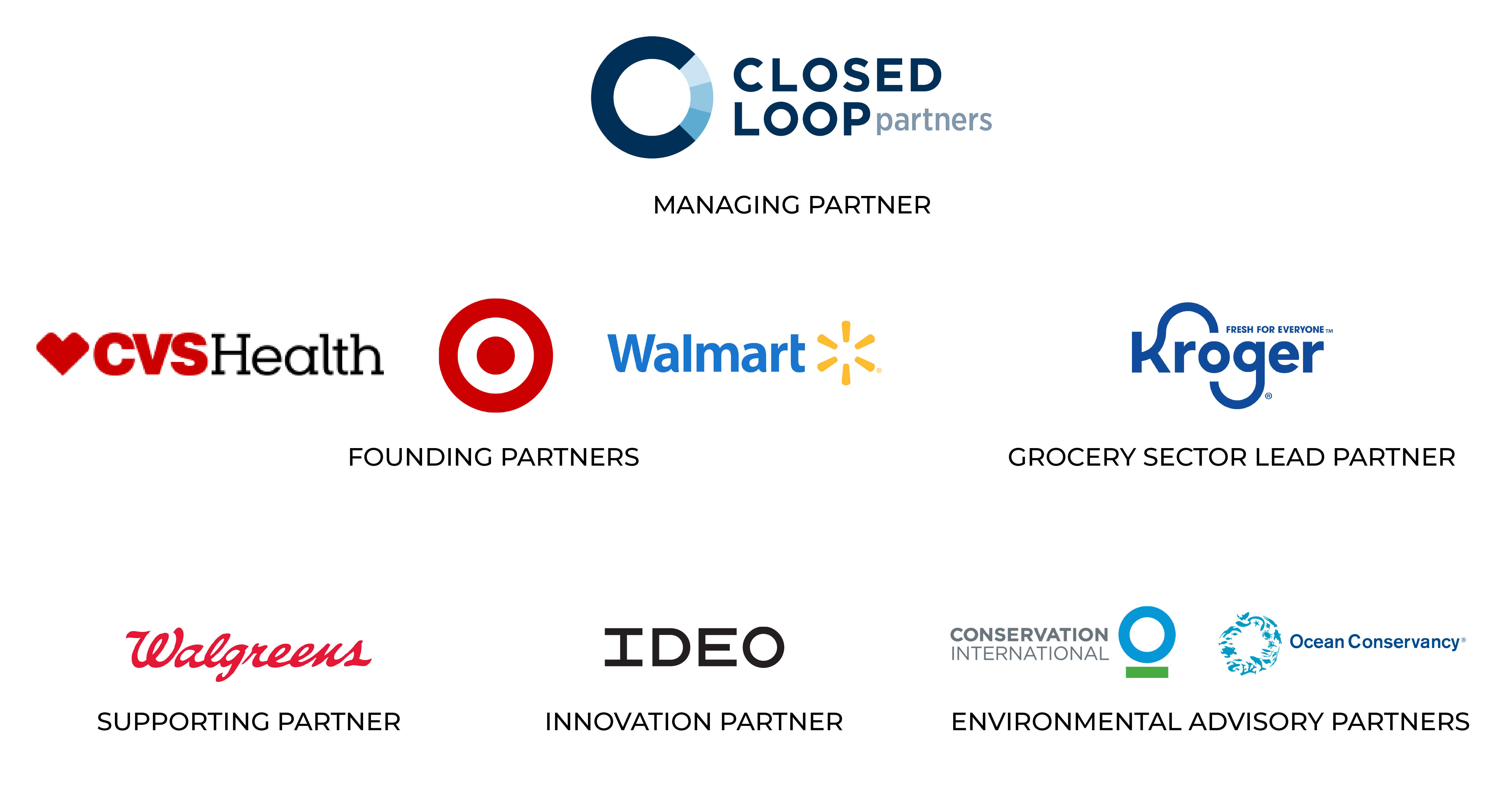NEW YORK, Feb. 16, 2021 /PRNewswire/ — The Center for the Circular Economy at Closed Loop Partners announces the nine winners of the Beyond the Bag Challenge: ChicoBag, Domtar, Eon, Fill it Forward, GOATOTE, PlasticFri, Returnity, SmartC and Sway. The winning solutions fall into three categories: Reuse and Refill; Enabling Technology; and Innovative Materials. Their work ranges from reusable packaging systems, to technology that incentivizes consumers to make the sustainable choice, to bags derived from seaweed or agricultural waste. The winners now enter the next phase of the initiative: working closely with the Consortium to prototype, refine and test the viability of their designs to scale as long-term solutions.
It is estimated that we use 100 billion plastic bags per year in the U.S. alone and less than 10 percent are recycled; the convenience of single-use plastics has had far-reaching consequences for the planet. Single-use plastic bags continue to be one of the top 10 items found along beaches and waterways according to data from Ocean Conservancy’s International Coastal Cleanup. The global threats brought about by climate change and the pandemic have only underscored the urgency of addressing our current system.
The Consortium to Reinvent the Retail Bag is a pre-competitive collaboration committed to reimagining the retail bag and creating a more circular delivery system. Unveiled in July 2020, the Consortium’s Beyond the Bag Initiative is an ambitious three-year undertaking that aims to identify and scale innovative alternatives to the single-use plastic retail bag. Consortium Founding Partners CVS Health, Target and Walmart committed $15 million collectively to the bold collaboration, with the goal of driving transformational change. The Consortium has welcomed additional partners DICK’S Sporting Goods, Dollar General, The Kroger Co., The TJX Companies, Inc., Ahold Delhaize USA Brands, Albertsons Companies, Hy-Vee, Meijer, Wakefern Food Corp., and Walgreens, who have joined in its mission.
“There is no one-size-fits-all solution to tackle a problem as complex as our reliance on single-use plastic bags,” says Kate Daly, Managing Director of the Center for the Circular Economy at Closed Loop Partners. “The diversity of our winners underscores how businesses and consumers alike need to employ a range of solutions to fit different geographic, social and economic contexts. We’re thrilled to announce these companies entering the next phase of the initiative, as we continue to support their growth and begin to implement select pilot programs.”
The Center for the Circular Economy at Closed Loop Partners offers a holistic approach to tackling complex challenges to the circular economy, by operating across every point of the value chain. This enables the Center and its partners to better understand the diversity of needs across multiple sectors, enhance buy-in from key players and identify opportunities. The Center is a place where competitors and peers alike can join for a common purpose.
“It is exciting to see the potential of our efforts to reimagine the single-use bag in action as we unveil these innovative solutions,” says Eileen Howard Boone, Senior Vice President, Corporate Social Responsibility and Philanthropy, CVS Health. “We look forward to exploring opportunities to pilot these solutions at CVS Pharmacy locations.”
The Beyond the Bag Challenge is only the first step. The Center and its partners are committed to a measured, data-driven approach to test and scale viable, long-term solutions that bring value to the entire system.
“We know that tackling this challenge requires a holistic approach to best serve the needs of people, the business, and the planet,” says Amanda Nusz, Senior Vice President of Corporate Responsibility, Target. “We’re excited by the nine winners – together they offer a compelling range of possibilities and inspiring potential solutions to this urgent and necessary work.”
“We’re proud to be part of a collaborative endeavor like the Beyond the Bag Initiative,” says Jane Ewing, Senior Vice President Sustainability, Walmart. “The Beyond the Bag Challenge winners inspire us to reimagine a more sustainable future, showcasing the breadth and tangibility of innovative solutions and we look forward to supporting them in their development.”
The Selection Process
The Beyond the Bag Challenge, in partnership with the global design firm IDEO, sought to identify long-term solutions that reimagine how to get goods home from an in-store purchase, from curbside pick-up, and in-home delivery. Over 450 innovators from around the world submitted their ideas on how to reinvent the retail bag. The Consortium then selected a shortlist of 58 concepts to explore deeper, and ultimately selected a cohort of 9 Winners.
Winners were chosen through a collective process by a panel of 10 subject matter experts alongside the Consortium’s Founding Partners, Sector Lead Partners, Environmental Advisory Partners and the Center for the Circular Economy at Closed Loop Partners. A comprehensive set of criteria addressed three overarching areas:
- People: it must maintain the convenience, efficiency and effectiveness of the single-use plastic bag for customers and retail employees alike. It must take into account accessibility and inclusivity.
- Business: it must have attainable, long-term value for retailers in a variety of environments.
- Planet: it must operate within a circular system and lessen or eliminate environmental and social harm in its sourcing, production, useful life and end-of-life.
These principles are equally important when looking to scale and implement systems that change how we transport items from businesses to home. The Beyond the Bag Initiative thinks outside the box, seeking solutions that align the interests of people, the planet and business.
The Next Phase
Winners will receive a portion of $1 million in prize money and are eligible for additional financial support to support testing, piloting and scaling efforts. Depending upon the type of solution, they will either be invited to join the Circular Accelerator, a mentorship program to further hone and advance their solutions, or begin product testing to improve performance, customer experience and more. The Consortium will work closely with winning solutions throughout 2021, supporting design research, prototyping, mentoring and iterative developments toward piloting select solutions in-market.
About the Center for the Circular Economy at Closed Loop Partners
The Center for the Circular Economy at Closed Loop Partners unites competitors to tackle complex material challenges and to implement systemic change that advances the circular economy. Adept at navigating every step in the value chain, Closed Loop Partners brings together designers, manufacturers, recovery systems operators, trade organizations, municipalities, policymakers and NGOs to create scalable innovations that target big system problems.
The Center’s first initiative, the NextGen Consortium, assembled leading food and beverage companies, including McDonald’s and Starbucks, to identify and commercialize a widely recyclable, compostable and/or reusable cup. 12 winning cup solutions were selected and the Consortium is supporting the testing of these new solutions as well as conducting select pilots to accelerate their path to scale. Learn more about the Center’s work here.
About the Consortium to Reinvent the Retail Bag
The Beyond the Bag Initiative, launched by the Consortium to Reinvent the Retail Bag, aims to identify, pilot and implement viable design solutions and models that more sustainably serve the purpose of the current retail bag. Closed Loop Partners’ Center for the Circular Economy launched the initiative with Founding Partners CVS Health, Target and Walmart. The Kroger Co. joined as Grocery Sector Lead Partner, DICK’S Sporting Goods joined as Sports & Outdoors Sector Lead Partner, Dollar General as Value Sector Lead Partner and TJX as Apparel & Home Goods Sector Lead Partner. Ahold Delhaize USA Brands, Albertsons Companies, Hy-Vee, Meijer, Wakefern Food Corp., and Walgreens are Supporting Partners, and Conservation International and Ocean Conservancy serve as Environmental Advisory Partners. IDEO is the Consortium’s Innovation Partner. Learn more about the Consortium here.

Contact: [email protected]



